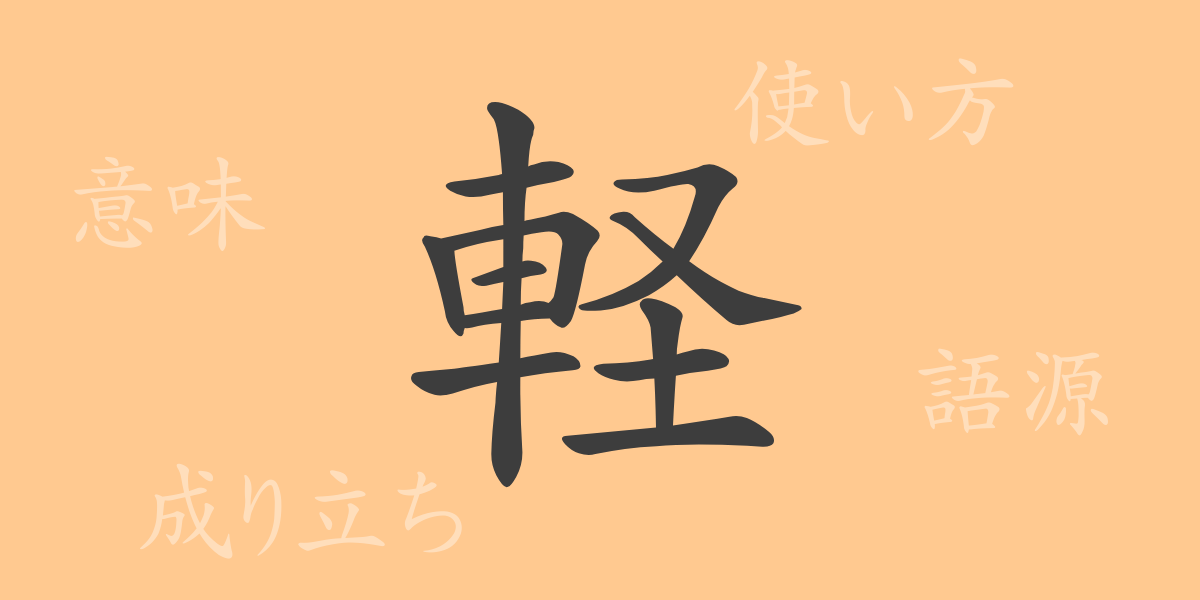Japanese is rich with kanji, each possessing unique histories and meanings. “軽(けい, kei)” is one of the commonly used kanji in daily life, providing deep and varied meanings that enhance our expressions. This article explores “軽(けい, kei)” from its etymology to its meanings, usages, readings, stroke count, radical, and idioms or proverbs, uncovering the full depth of this kanji.
Origin of 軽(けい, kei) (Etymology)
The kanji “軽(けい, kei)” originated in ancient China as a term to describe the smooth, effortless movement of a vehicle. Among many vehicle-related kanji, “軽(けい, kei)” was thought to signify a car moving smoothly with minimal effort. Over time, “軽(けい, kei)” came to represent not only physical lightness but also psychological lightness and the relative importance or triviality of situations.
Meanings and Uses of 軽(けい, kei)
“軽(けい, kei)” means “light in weight,” “not important,” or “trivial.” It appears in compounds like “軽快(けいかい, keikai)” (light and cheerful), “軽減(けいげん, keigen)” (reduction), and “軽蔑(けいべつ, keibetsu)” (contempt). In everyday conversation, “軽(けい, kei)” is used both literally, as in “軽い荷物(かるいにもつ, karui nimotsu)” (light luggage), and figuratively, as in “軽い気持ち(かるいきもち, karui kimochi)” (light-hearted feeling).
Readings, Stroke Count, and Radical of 軽(けい, kei)
Understanding “軽(けい, kei)” involves knowing its readings and structural components:
- Readings: The on’yomi (Chinese reading) is “ケイ(けい, kei),” and the kun’yomi (Japanese reading) includes “かるい(karui)” and “かろやか(karoyaka).”
- Stroke count: “軽(けい, kei)” has 12 strokes.
- Radical: The radical is 車部(くるまへん, kuruma-hen), meaning “vehicle.”
Idioms, Expressions, and Proverbs Using 軽(けい, kei)
Idioms and expressions containing “軽(けい, kei)” reflect its core meanings:
- 軽挙妄動(けいきょもうどう, keikyomoudou): Rash actions.
- 軽薄(けいはく, keihaku): Frivolous or superficial.
- 一軽二重(いっけいにじゅう, ikkaijuu): Emphasizes the importance of judging the relative lightness and heaviness of matters.
Conclusion on 軽(けい, kei)
This article has deepened your understanding of the kanji “軽(けい, kei).” By recognizing its rich history and varied meanings, we can use language more richly and accurately. “軽(けい, kei)” is a widely used kanji in Japanese, and knowing its diverse applications is highly beneficial for deepening your understanding of the language. By appropriately using expressions containing “軽(けい, kei)” in daily communication, you can aim for more refined language use.

























